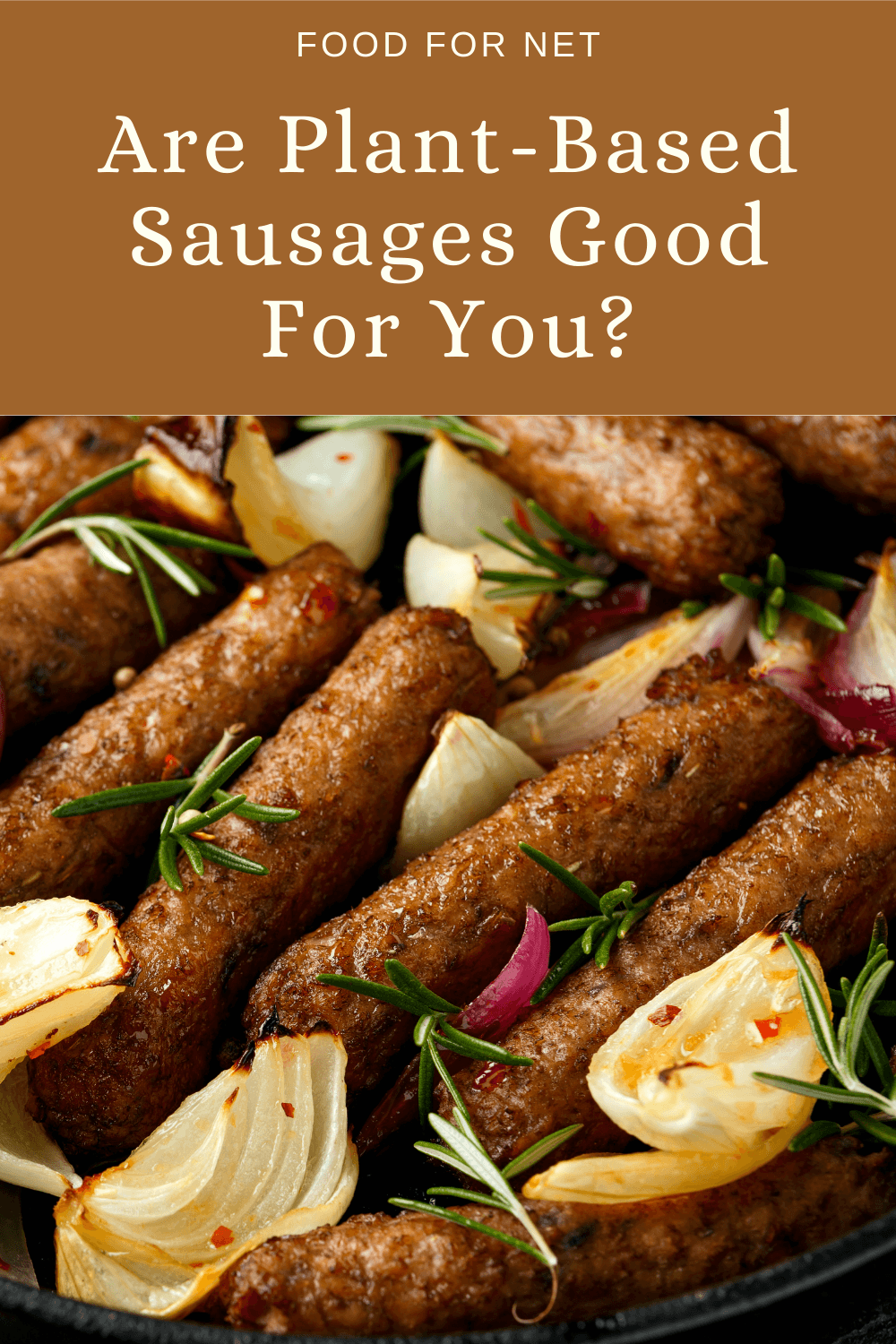
Sausages are incredibly popular, especially at breakfast time. They’re hearty, delicious, and easy to prepare. Yet, sausages have a dark side too, as they’re processed, are high in saturated fat, and may even increase the risk of cancer. Plant-based sausages sound like a fantastic alternative, but are plant-based sausages good for you?
These products avoid meat entirely, using legumes and other ingredients to give you a sausage-like appearance and texture.
There are plenty of reasons to turn to plant-based sausages. Maybe you don’t want to eat animals or want to reduce your environmental impact. Maybe you don’t like the taste of meat or want something less greasy. What about health, though? Are plant-based sausages good for you?
It’s easy to assume that the sausages are highly nutritious. They’re made from plants, right? We already know that plant-rich diets offer many health benefits.
Be that as it may, plant-based foods do come with their own issues and many aren’t as healthy as they first seem. This is true for plant-based ice cream, meat, cheese, and many others. So, let’s see what the story is for plant-based sausages.
Are Plant-Based Sausages Good For You?
- Examples Of Plant-Based Sausages
- Benefits Of Plant-Based Sausages
- The Risks Of Plant-Based Sausages
- Can Vegans Eat Plant-Based Sausages?
- Do Plant-Based Sausages Taste Like The Real Thing?
- Are Plant-Based Sausages Healthy?
- Can You Make Your Own Plant-Based Sausages?
- Final Thoughts
Examples Of Plant-Based Sausages
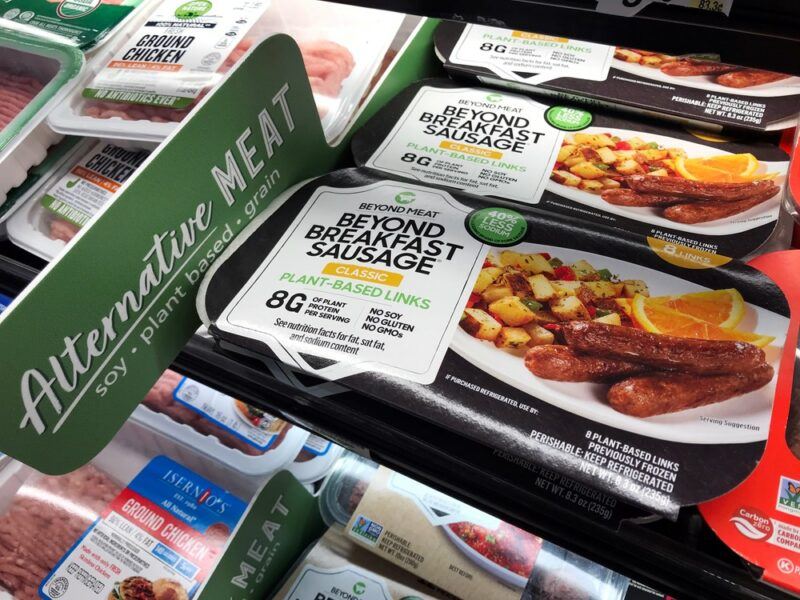
Before we dig into the benefits and risks of plant-based sausages, we need to look into some of the different products on the market. After all, there are plenty of brands to choose from. They take vastly different approaches to making their sausages. Those differences directly impact the health effects of their products.
Beyond Sausage
This product comes from Beyond Meat, a company that’s famous for their plant-based meat. In particular, Beyond Meat creates products that look and taste much like the real thing.
Their sausages contain 16 grams of protein each, where the protein mostly comes from peas. Other ingredients include refined coconut oil, natural flavors, methylcellulose, apple fiber, and potato starch.
Each sausage contains 190 calories, 12 grams of fat, 5 grams of saturated fat, and 3 grams of fiber. There’s no added sugar, but the sodium content is 500 mg per sausage.
Tofurky
Tofurky offers three types of sausage: Beer brats, Italian, and kielbasa. These all use tofu as the main source of protein, as do other products from the company.
The Italian version of the sausages also include vital wheat gluten, canola oil, soy sauce, sundried tomatoes, soy flour, and various spices. Each sausage contains 260 calories, 15 grams of fat, 1.5 grams of saturated fat, 2 grams of sugar, and 480 mg of sodium. The protein content is impressive, at 23 grams per sausage.
Field Roast Sausages
Field Roast is another company that offers various types of sausage. Their collection includes flavored plant-based sausages, a breakfast sandwich, and breakfast sausage patties.
Their Italian Garlic and Fennel Sausages contain 220 calories each, with 8 grams of fat, 0.5 grams of saturated fat, 600 mg of sodium, and 2 grams of sugar. The protein content is even higher here, at 25 grams per sausage.
The ingredients used include vital wheat gluten, safflower oil, wheat protein isolate, and various spices. Because wheat protein is used heavily, none of the company’s products are gluten free. They’re not organic either, although they are all non-GMO project verified.
Benefits Of Plant-Based Sausages
Shouldn’t Have The Same Cancer Risk As Regular Sausages
Processed meats are now classified as a Group 1 carcinogen, meaning there’s strong evidence that they raise your risk of cancer, particularly bowel and stomach cancer.
This cancer effect appears to be related to nitrates, which can be converted into chemicals that influence cancer risk. While nitrates are found in plants as well, it’s the ones that are added to keep processed meat fresh that are the most concerning for your cancer risk.
Plant-based sausages are excellent in this way, as most brands don’t contain added nitrates or nitrates. They also don’t have the same types of protein found in meat, which should reduce the risk of cancer even further.
A Source Of Vegan Protein

Getting enough protein on a vegan diet can be surprisingly difficult. While there are plenty of vegan sources of protein, many of them require prep work. You can’t just eat them as-is. If you’re working with legumes, like beans or lentils, you may need to soak them before cooking them too. That just adds to the amount of effort.
Plant-based sausages are much easier to work with. Most products are designed so you can simply fry them – exactly like you would do with regular sausages.
Suddenly it’s easy to get all the protein you need, especially as you may be getting 20 grams of protein (or even more!) in a single sausage. Sometimes plant-based sausages even contain more protein than a real sausage.
You probably know why protein is important already. Our bodies break down the protein in our foods and use this to construct proteins we need to function well. This is why protein helps us to build muscles. It also has many other less obvious effects.
Protein helps us to feel satisfied too, reducing our cravings for snacks and excess calories. This makes it a perfect tool for weight loss.
Contains Less Fat Than Regular Sausages
Sausages are often high in fat and much of that fat is unhealthy. This is one reason they’re problematic, as high levels of saturated fat can raise cholesterol levels and lead to a higher risk of heart disease.
Plant-based sausages often contain less fat. For example, you might get around 20 grams of fat and 7 grams of saturated fat in a regular sausage.
In contrast, the sausages we mentioned earlier ranged from 8 to 15 grams of fat and 0.5 to 5 grams of saturated fat. Even the fattiest versions of these were leaner than real sausages.
Could Promote Weight Loss
Plant-based sausages could help you to lose weight, as they typically contain fewer calories than regular sausages and are also a decent source of protein.
The protein is highly relevant, as it helps to keep you satisfied. It could reduce the chance that you snack between meals.
This weight loss effect is most likely if you’re eating plant-based sausages instead of something higher in fat and calories (like regular sausages). Simply adding plant-based sausages to your diet won’t help with your weight much at all.
They’re More Ethical
Many people focus on plant-based foods for ethical reasons, rather than health. After all, the dairy industry causes serious damage to the environment, often leading to water pollution, high levels of greenhouse gases, and the loss of important parts of our environment.
Then there’s the ethics of eating animals, along with how cows are treated throughout their lives.
Plant-based sausages get around all of these problems. No animals die to make your sausages and the environmental impact of production is much lower as well.
The Risks Of Plant-Based Sausages

They’re Highly Processed
Plant-based sausages don’t look at all like the foods they’re based upon. A lot of processing is needed to take an ingredient like wheat or soy and turn it into something that’s similar to a beef sausage.
This isn’t what we want from healthy foods, as each processing step can strip away some of the nutrients from our food, giving us an inferior product. That’s not all. Processed foods often contain additives as well and there’s the risk of contaminants getting introduced during the processing steps.
Here’s another critical point.
We know that plant-heavy diets are healthy, right? They offer countless benefits and could even help you to live longer.
That’s true, but most studies that tell us this about plants have focused on whole foods. They’ve been looking at people who eat plenty of vegetables, whole grains, and legumes.
Do the same effects happen if you rely on processed plant-based foods instead? Perhaps. Perhaps not. The research hasn’t been done yet.
There Can Be Unexpected Ingredients
Plant-based sausages often use additives to give them the desired flavor and texture. Some of these are less than ideal, including binders, artificial flavors, refined oils, dextrose, or added sugar.
While such additives have been tested for safety, they could still cause harm, especially if you’re consuming them regularly. Besides, it’s not like the additives improve your health at all, so why consume them?
There May Be Unknown Health Effects
We don’t know all the ways that plant-based meats influence our health, particularly not in the long term. It’s always hard to tease out the health effects of food, as our diets are so varied and every single ingredient can have multiple impacts.
Processed foods could easily have unexpected effects, particularly those that use additives. After all, heavily processed foods are a fairly new idea. We’ve eaten very differently than this for most of human history.
This issue is particularly relevant for plant-based research. Some tests suggest that some products produce carcinogens when they’re cooked – to the point that the meats may need a Prop 65 warning in California.
Much more research is needed before we know whether plant-based meats actually increase the risk of cancer (and, if they do so, the risk is probably much lower than with processed meat). Still… this shows how plant-based meat may not be as amazing as it first appears.
They Can Still Be High In Saturated Fat

Saturated fat may cause all types of problems, including increasing your heart disease risk. Plant-based sausages seem like an ideal way to cut down your saturated fat intake, except this isn’t always the case.
As we showed earlier, some brands still rely on fat and saturated fat. Doing so makes their products more like regular sausages, but the approach isn’t great for your health. For example, the brat version of Beyond Sausage contains 12 grams of total fat per serving, which includes 5 grams of saturated fat.
The Sodium Content
Let’s not forget about the sodium either. You’ll often see somewhere between 500 and 600 mg of sodium per sausage, which is more than 20% of your daily intake.
That’s a lot for one sausage. After all, your meal will include other ingredients too, some of which may have salt. You might also be eating more than one sausage at a time.
Sodium is a serious problem these days. It’s widespread in processed foods, making it easy to go far above the amount you need. In fact, official guidelines suggest consuming no more than 2,300 mg per day. Your ideal intake is much lower than that, around 1,500 mg each day.
Yet, the average American consumes much more than this – around 3,400 mg per day. As such, there’s a clear need to cut down on sodium intake, as too much sodium raises blood pressure, can lead to fluid retention, and increases heart disease risk.
Some plant-based sausages contain less sodium than others, but most contain a decent amount. After all, they’re trying to mimic the flavor of regular sausages and regular sausages use plenty of sodium too.
May Contain Gluten Or Soy
Wheat and soy are controversial ingredients, and both are sometimes used to make plant-based sausages. One of the biggest issues for wheat is gluten, which can cause an array of symptoms for anyone with celiac disease or gluten sensitivity.
Soy, on the other hand, contains antinutrients and phytoestrogens. The antinutrients can lower your absorption of particular nutrients, while phytoestrogens can sometimes influence the estrogen in your body.
The benefits of soy are still thought to outweigh the risks, but many people choose to simply avoid soy instead. Thankfully, there are plenty of soy-free plant-based meats out there. There are even products that avoid both soy and gluten. You’ll just need to shop around to find them.
Are Lower In Some Nutrients
While plant-based products can be rich in nutrients, they never contain the same nutrient balance as meat. In particular, plant-based versions are often lower in vitamin B12, zinc, and iron.
The decrease in nutrients can even lead to deficiency, unless you account for it elsewhere in your diet. This could include eating zinc rich and iron rich foods.
As for vitamin B12, you may need to turn to supplements instead. Most vitamin B12 rich foods are animal-based, so they don’t fit well onto a vegan diet.
Can Vegans Eat Plant-Based Sausages?

Plant-based sausages sound perfect for vegans, as they use plants as their source of protein, rather than meat. However, plant-based foods can still use animal ingredients, as long as they mostly consist of plant-based ingredients.
Most plant-based sausages won’t use meat at all, but a handful may use eggs as a binder or some type of animal-based byproduct.
Thankfully, such approaches are rare. They’re getting less common too, as most customers don’t want any animal-based ingredients in their meat.
Still… the fact that companies can use animal-based ingredients highlights the importance of checking your ingredients labels carefully. Keep an eye out for the word vegan on the packaging too, as most vegan products will use the word somewhere in their marketing.
Do Plant-Based Sausages Taste Like The Real Thing?
Some plant-based sausages taste surprisingly close to the real thing. If you cook them just right or use them in a meal that has other ingredients, you might not be able to tell the difference.
Still, most of the time there are differences – sometimes quite dramatic ones. You’ll probably find that you enjoy some plant-based sausages, but can’t stand others.
Tofurky sausages, for example, tend to be particularly unpopular, with many people not enjoying the flavor or texture. Impossible Sausages and Beyond Sausages tend to be better received, but they’re also higher in saturated fat and lower in calories.
In fact, the sausages that taste most like the real thing are probably high in saturated fat and sodium, so they’re not all that good for you.
Are Plant-Based Sausages Healthy?
Plant-based sausages tend to be better for you than regular sausages, as they’re often lower in calories, fat, and saturated fat. Processed meat like sausages has also been linked to an increased risk of cancer. Plant-based meat doesn’t seem to have the same effect.
So then, plant-based sausages are healthier, but this doesn’t necessarily mean that they’re healthy. Remember that many plant-based versions are surprisingly high in calories, saturated fat, and sodium.
We’re also talking about a highly processed type of food, which is never ideal for health. Plus, there’s still so much to learn about how these foods affect us in the long term. After all, meat has been consumed for generation upon generation, while plant-based meat is a much newer idea.
Can You Make Your Own Plant-Based Sausages?

Most of the problems with plant-based sausages come from the level of processing. Most products are heavily processed and many rely on additives as well, features that are never ideal for your health.
A good way around this is to make your own plant-based sausages, ones that rely on whole food ingredients and don’t use additives. Such sausages might not have the same taste and texture as processed sausages, but they should be much healthier as well.
The site Healthier Steps has one such recipe that you can try out. It is on the complicated side, but mostly because it uses a variety of herbs and spices to get the flavor just right. Another recipe comes from Tales from the Kitchen Shed. This one relies on lentils for protein, while adding mushrooms and herbs for extra flavor.
There are plenty of other recipes too. The trick is to pay close attention to the recipes to ensure that the sausages will give you what you’re looking for.
For example, some recipes will give you high protein sausages, while others may be higher in carbs instead. You may also find some that include gluten or added sugar, along with others that are gluten free and sugar free.
Final Thoughts
If you love sausages and don’t want to give them up entirely, plant-based sausages can be a good choice. They’re also an easy choice if you want something to throw on the grill.
However, unless you make your own and choose the recipe carefully, plant-based sausages aren’t exceptionally healthy. Most of them are heavily processed. Many are also high in saturated fat and protein.
Even if you do find a relatively healthy product, you’ll probably see more benefits by focusing on whole foods instead, like beans and lentils. As such, plant-based sausages are best seen as an occasional treat, rather than something to eat frequently.
Frequently Asked Questions
How Do You Cook Plant-Based Sausages?
Some plant-based sausages can actually be eaten raw due to the ingredients that they use, while others need to be cooked first (for example, those that use lentils will often need to be cooked first). It’s best to check the package to find out which is the case for your sausages, as the answer varies from brand to brand.
Many plant-based sausages can be pan fried exactly as you would a regular sausage. But, you may need to be gentle with them, as some plant-based sausages fall apart easily (this is particularly true for homemade ones).
Other times, it’s best to cook the sausages in the oven. You might even be able to air fry them. Thankfully, most companies will provide cooking instructions. Recipe creators do as well, so you should always have a sense of the best cooking approaches.
Are Plant-Based Sausages Gluten Free?
Many plant-based sausages are gluten free. However, this varies from one product to the next, so it’s always important to check the ingredients label.
Companies that have a gluten free label on their products are particularly good. Some of these will regularly test their products to make sure there’s no gluten contamination.
Are Plant-Based Sausages Keto Friendly?
Some plant-based sausages are fairly low in carbs, so they can be included on keto. But, many others are pretty high in carbs, sometimes containing around 20 grams of carbs or more per serving.
Regardless, plant-based meat will almost be higher in carbs than real meat. You’ll need to choose the product carefully and watch your serving size to fit these onto a keto diet.
What Do Plant-Based Sausages Taste Like?
Some products have a similar taste and texture to regular sausages, while others are quite different. Most of the time you’ll be able to taste at least some plant-based flavors and any meatiness probably won’t taste quite right.
You’ll also find that heavily processed plant-based sausages are the closest to the real deal, partly because of the additives they use. The more natural the product is, the more it’s going to taste like plants, rather than sausage.
Are Plant-Based Sausages Processed?
Most plant-based sausages are processed to some degree. They need to be to create the flavor and texture of regular sausages. Sometimes the amount of processing is intense and companies use a variety of additives to get the flavors they want.
Not surprisingly, this amount of processing isn’t great for health at all. It’s often best to only use these products occasionally and focus on more natural foods most of the time.

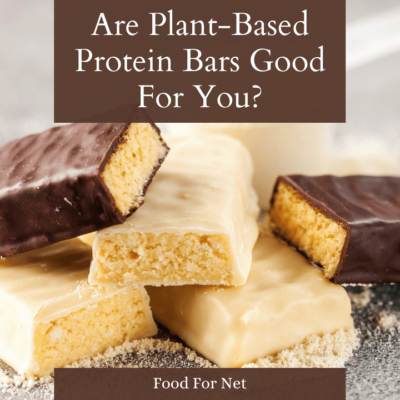
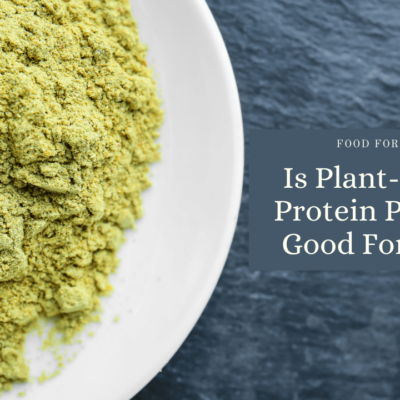
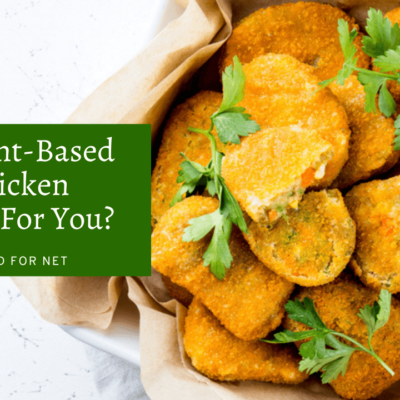
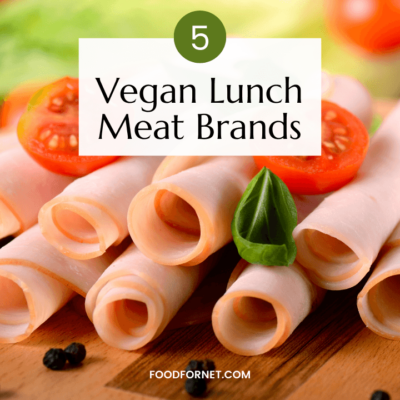

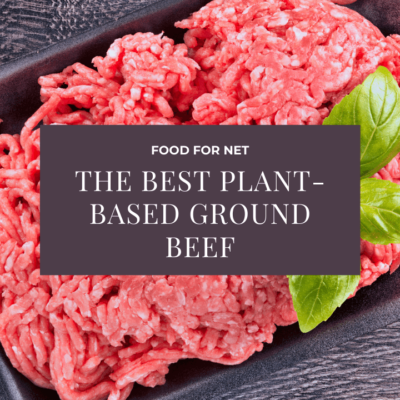
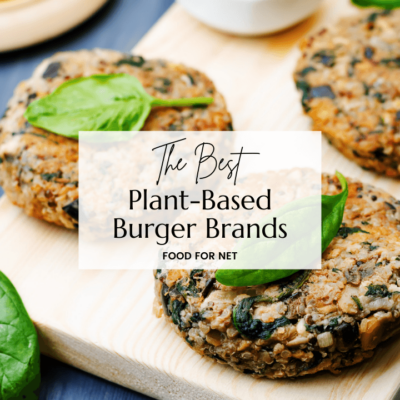
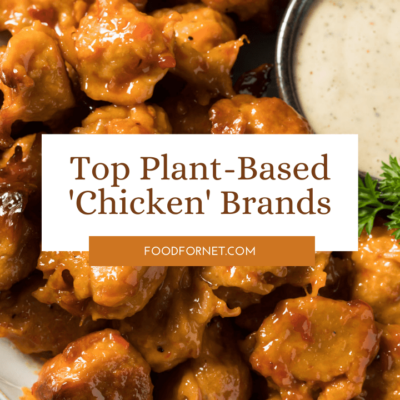
 Is Pho Good For You?
Is Pho Good For You?
Leave a Reply